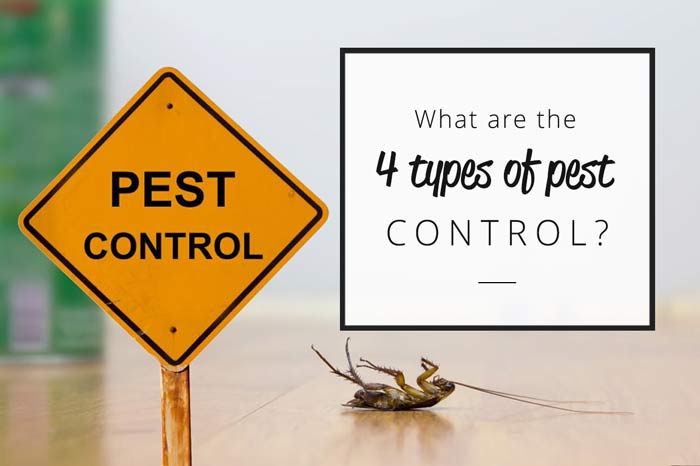The Main Principles Of Pest Control
The Ultimate Guide To Pest Control
Table of ContentsThe 9-Second Trick For Pest ControlUnknown Facts About Pest ControlThe Facts About Pest Control Uncovered9 Simple Techniques For Pest ControlThe Definitive Guide for Pest Control
Limitations of Chemical Administration Be able to evaluate pest issues, establish if monitoring is required, and make suitable referrals using IPM strategies. Be familiar with different methods of pest administration - their benefits and limitations. Comprehend the value of helpful pests. It is not possibleor also desirableto rid gardens of all insects.This phase discusses (IPM), an approach that utilizes understanding concerning insects and their, practices, nonchemical techniques, and pesticides to handle insect troubles. Added information regarding IPM for specific plants is included in phases that concentrate on those plants. Nonchemical pest control procedures are worried in chapter 17, "Organic Horticulture." Handling birds and animals is covered in phase 20, "Wild animals." Taking care of in the yard and yard is covered in phase 6, "Weeds." Pests in a garden or landscape may include bugs and termites, weeds,, mammals, and birds.
Lots of people rush to pull, hoe, or spray every weed they see. Pests and weeds, however, contribute in the. After growing a yard or establishing a grass, the all-natural process of plant sequence begins to improve and nonnative plants. A weed growing in a yard stands for the initial stage in a series of events that, if enabled to proceed, could at some point lead to a forest.
What we call "bugs" are part of an all-natural system at work. Just people consider particular varieties pests when they take place where they are not desired.
Our Pest Control Diaries
Bugs at risk to a chemical were rapidly killed, leaving resistant ones to reproduce and multiply. It ended up being clear that pesticides alone would certainly not solve all bug troubles. Instead, overuse of chemicals created the advancement of resistant insects. Researchers began to develop a new strategy to pest control. This brand-new method was defined as integrated parasite management (IPM).
An IPM plan enables some level of insects in the atmosphere. Bugs are much less most likely to endure a program that makes use of various methods of minimizing their populaces. Integrated insect management was very first suggested by entomologists due to the fact that insects were the very first group of bugs to prove tough to take care of with chemicals alone.
A limit is the factor at which action must be taken. IPM has prolonged past bugs to management of all pest populations: weeds, illness microorganisms, and animals.
The Greatest Guide To Pest Control
Administration rather than elimination of insects is the goal. An IPM plan starts with a careful analysis of each pest invasion.
Clover growing in a yard might be seen as an undesirable weed, but as a bean it is synthesizing nitrogen for the dirt and the flowers are providing nectar to honey bees and other. Resistance for some weeds may become part of an IPM strategy. might be see this here consuming the leaves of a plant, but when they are identified as the larvae of Eastern tiger swallowtail butterflies, their damage might be tolerated so we can appreciate the lovely butterfly.

The second essential device in pest administration is very early treatment. Being present and watchful in the garden guarantees early detection. Responding to troubles rapidly, prior to they have time to multiply, calls for a much less remarkable treatment. The 3rd most crucial tool is recordkeeping; tracking what happens in the yard allows a gardener to identify patterns and make educated choices.
Not known Facts About Pest Control
Lots of safe, useful, nonchemical methods of plant protection and parasite administration may lower or eliminate the demand to spray. Various other approaches are most valuable when made use of with chemicals. To implement monitoring practices correctly and to lessen losses, gardeners ought to understand the kinds of bugs that attack plants and comprehend pest biology.

Conducting a dirt examination and using just the suggested amount of plant food and lime makes the most of the benefit to the plant while decreasing problems associated to excessive use plant food - Pest Control. Covering the soil with numerous inches of mulch secures the plant in several means: minimizing soil navigate to this site water loss to dissipation, decreasing weed competitors, offering nutrients, and creating a suitable setting for earthworms and microorganisms that keep the soil loosened for origins and break down natural product to release nutrients
If mulch touches the trunk, it can develop a means for voles, bacteria, and fungi to attack the plant. Do not utilize manure or compost that has actually not thoroughly decayed as a top dressing due to the fact that it can urge undesirable insects. Research suggests that tilling the dirt is destructive to dirt structure.
The 20-Second Trick For Pest Control
If tilling is considered needed, take into consideration doing it in the autumn when the life cycles of lots of insects brings them near the surface area. At view the surface area, pests end up being revealed to the climate as well as birds and other all-natural adversaries.